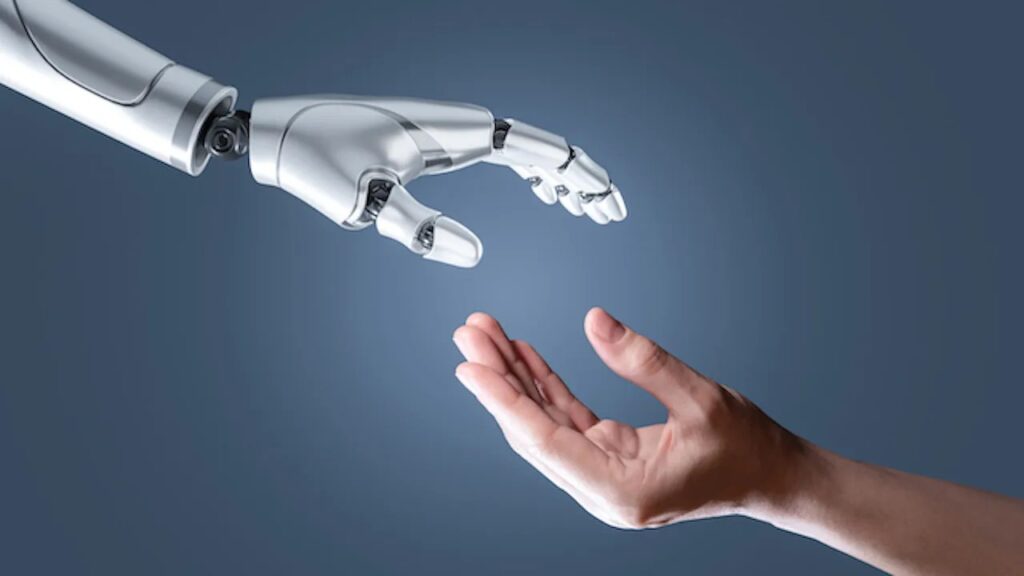Artificial Intelligence (AI) is drastically changing the way we live and interact with technology. The integration of machine learning and robotics has propelled this revolution forward. AI has evolved from rule-based systems to sophisticated algorithms that can learn and improve over time. Machine learning, a subset of AI, analyzes data to identify patterns and make predictions. Meanwhile, robotics has become more intelligent and versatile, with AI-powered robots capable of understanding human speech and navigating dynamic environments. AI is already impacting our daily lives through personal assistants, smart healthcare, and autonomous vehicles. However, challenges such as data privacy, job displacement, and ethical decision-making must be addressed as AI continues to advance.
AI Revolution: How Artificial Intelligence, Machine Learning, and Robotics are Shaping Our Future
Introduction
Artificial Intelligence (AI) is revolutionizing the way we live, work, and interact with technology. With advancements in machine learning and the integration of robotics, our future is being shaped by these transformative technologies. In this article, we will explore how AI is impacting different aspects of our lives and what we can expect from this ongoing revolution.
The Rise of Artificial Intelligence
AI has come a long way since its inception. From the early days of rule-based systems to the present-day sophisticated algorithms, AI has evolved rapidly. The integration of machine learning algorithms, which are capable of learning from vast amounts of data, has further accelerated the advancements in AI. Today, AI is not only able to perform complex tasks but also adapt and improve over time.
Machine Learning: The Backbone of AI
Machine learning, a subset of AI, focuses on developing algorithms that can learn and make predictions or decisions without explicit programming. By analyzing large datasets, machine learning algorithms can identify patterns, make correlations, and provide insights. This ability to learn from data and improve performance makes machine learning essential in various AI applications.
Robotics: The Physical Manifestation of AI
With the integration of AI and machine learning, robotics has witnessed substantial growth. Robots are no longer limited to repetitive tasks in factory settings; they are becoming more versatile, intelligent, and capable of performing complex operations. AI-powered robots can now understand human speech, recognize facial expressions, and navigate through dynamic environments. This convergence of AI and robotics has opened up a wide range of applications, from healthcare and logistics to autonomous vehicles and smart home assistants.
AI in Everyday Life
The impact of AI is felt in our daily lives, sometimes so seamlessly that we may not even be aware of it.
Personal Assistants
AI-powered personal assistants, such as Amazon’s Alexa, Apple’s Siri, or Google Assistant, have become ubiquitous in our households. These intelligent virtual assistants use natural language processing and machine learning algorithms to understand and respond to our voice commands. They can answer questions, play music, manage smart home devices, and even help with online shopping. As these assistants continue to improve, they will become even more integrated into our routines and offer personalized experiences.
Smart Healthcare
The healthcare industry has begun leveraging AI to enhance patient care and improve outcomes. Machine learning algorithms can assist in diagnosing diseases, analyzing medical images, and predicting patient outcomes. AI also enables the monitoring of vital signs, providing early warnings for potential health issues. Additionally, AI-powered chatbots can facilitate remote consultations and answer patient queries, easing the burden on healthcare providers.
Autonomous Vehicles
One of the most significant developments in AI and robotics is the advent of autonomous vehicles. Companies like Tesla, Waymo, and Uber are actively working on self-driving car technology. AI algorithms analyze sensor data to navigate roads, make decisions, and avoid obstacles. This technology not only holds the potential to revolutionize transportation but also reduce accidents and congestion while enhancing energy efficiency.
Challenges and Ethical Considerations
As AI continues to evolve, it brings forth a set of challenges and ethical considerations that must be addressed.
Data Privacy and Security
The widespread adoption of AI relies heavily on data. The collection, storage, and utilization of vast amounts of personal data raise concerns about privacy and security. Safeguarding this data and ensuring responsible data handling practices are crucial to maintaining trust and user acceptance of AI systems.
Job Displacement and Automation
The increased automation brought about by AI and robotics can lead to job displacement. As machines take over certain tasks, many jobs may become obsolete, impacting various industries and the workforce. It is essential to find a balance between automation and training the workforce for new roles that leverage AI to create value.
Ethical AI Decision-making
The complexity of AI systems can make it difficult to understand and interpret their decision-making processes. Ensuring that AI algorithms are transparent, fair, and unbiased is crucial to prevent discriminatory or unethical outcomes. Ethical guidelines and regulations must be established to govern the development and deployment of AI systems.
Conclusion
The AI revolution encompasses artificial intelligence, machine learning, and robotics, which together are transforming our future. From personal assistants to smart healthcare and autonomous vehicles, AI is permeating various aspects of our lives. However, as this revolution progresses, it is important to address the challenges and ethical considerations associated with AI. By doing so, we can harness the power of AI and shape a future where technology works in harmony with humanity.
